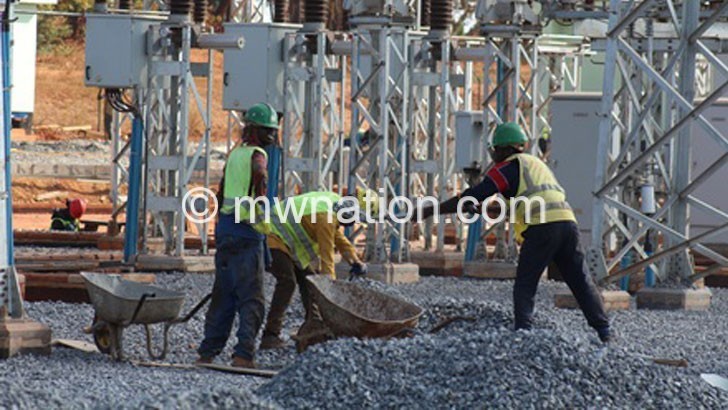New tariff should Boost power supply
Malawi Confederation of Chambers of Commerce and Industry (MCCCI) has said the 31.8 percent electricity tariff hike over a four-year period will be meaningless if Escom does not improve power supply.
The pronouncement by MCCCI chief executive officer Chancellor Kaferapanjira on Tuesday comes on the back of a tariff hike approval by Malawi Energy Regulatory Authority (Mera) on Monday based on Electricity Supply Corporation of Malawi (Escom) undertaking to improve electricity supply, which has been intermittent for the past three years.

Escom had initially requested a 60 percent tariff hike, but Mera trimmed the proposal by half, with 20 percent effective on October 1 2018, attracting mixed views from economic watchers.
Following the approval, electricity tariff will go up from K73.23 per kilowatt hour (kWh) to K88.02 kWh for 2018/19, to K94.54 kWh in 2019/20, to K91.98 kWh in 2020/21 and finally K101 kWh in 2021.22
In an interview, Kaferapanjira welcomed the tariff hike, but called for improved power supply which was the basis for Escom’s request for the tariff increase.
This was also the view reinforced by Mera chief executive officer Collins Magalasi at a news conference on Monday in Lilongwe when announcing the electricity tariff hike.
Said Kaferapanjira: “The key thing is that adequate electricity must indeed be generated within the next one or two years. Electricity Generation Company [Egenco] and other power producers must bring that power to the grid. If this does not happen, then the current adjustment will not mean anything.”
He said the private sector lobby group hopes that the new tariff is cost-reflective which will attract Independent Power Producers (IPPs) into in the power sector.
On its part, Malawi Economic Justice Network (Mejn) said the 31.8 percent electricity tariff hike will have a knock-on effect on low-income earners.
Mejn acting executive director June Kambalametore Mtila, in an interview on Tuesday, said the country’s economy would be negatively affected.
“An increase in production costs will automatically increase the cost of doing business. Small businesses will be affected by this,” she said.
“Based on the international poverty line of $1.90 [about K1 392] per day, 69 percent of the Malawi population is classified as poor. In Malawi, it is evident that fuel and electricity are the main cost drivers. With this development, we expect the industries to immediately adjust the pricing.”
But Economics Association of Malawi (Ecama) president Chiku Kalilombe argued that in the short-term the hike will mean escalation in production costs, but in the long-term, it will assist the country to attract investors in the power generation sector.
Escom was yet to respond to our query on whether they agree with the Mera’s tariff hike approval which fell short of their expectation.





